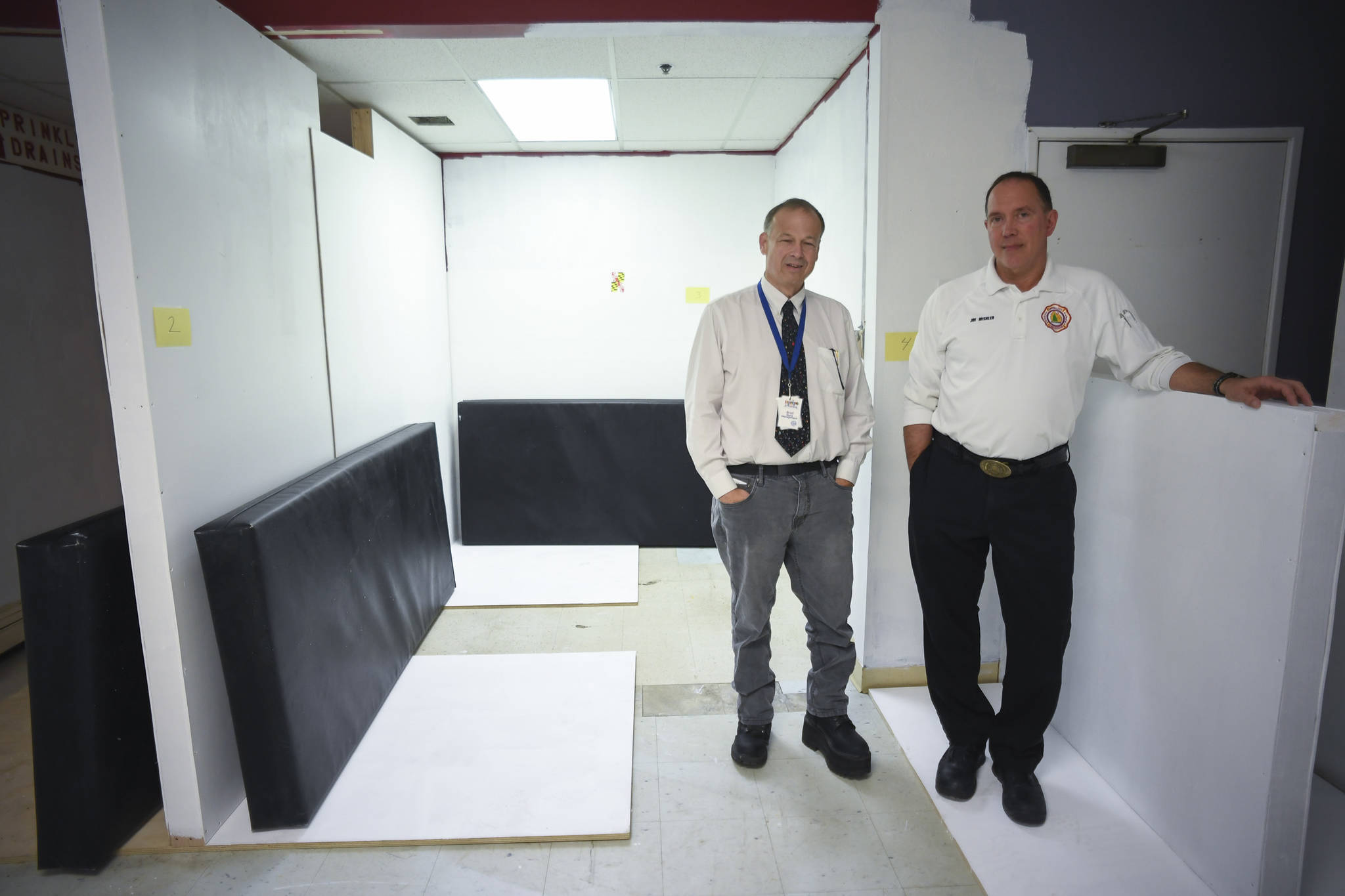It’s been three weeks since the city’s sleep off center has been operational under a new name, new location and new management.
But the mission — helping get people off the street at night — has remained the same.
“It’s the same service, with the same EMTs driving the same van,” said Joe Mishler, EMS training officer with Capital City Fire/Rescue.
CCFR teamed up with St. Vincent de Paul to take stewardship of Juneau’s sleep-off center, under the new name CCFR CARES, or Community Assistance Response and Emergency Services. It was formerly located at the Rainforest Recovery facility near Bartlett Regional Hospital. The hospital’s new construction made it necessary for the sleep-off program to rapidly relocate.
The sobering center is a long-running program designed to give individuals rendered incapacitated through substance abuse somewhere to sleep off their intoxication where they don’t pose a danger to themselves or exposure to the cold. The pick-up van can give people a ride home, somewhere safe, or the sobering center if they have neither.
The center has moved to St. Vincent de Paul’s former thrift shop location at 8167 Teal St. The new location of the thrift store is 9151 Glacier Highway. The new sobering center is still settled in a temporary space in the former thrift store, said Bradley Perkins, general manager for the St. Vincent de Paul facilities and programs in the area.
St. Vincent de Paul is providing the facilities while CCFR provides the personnel and expertise. The new facility can hold about five people, Perkins said. The decision to transfer the program to St. Vincent’s came very quickly, Perkins said, with the call coming down last week, signing the lease, and moving the facility to a temporary structure on the first floor of the building.
The permanent space in the building will have showers, lockers and a cooking area, as well as a sleep-off area for those who need it.
“The permanent facilities are still months out,” Mishler said. But the program’s services haven’t changed, with the same personnel and the same vehicle, and funding coming from the same place, taxes on alcohol and tobacco.
“It’s a perfect match,” Perkins said, talking about mating the program with St. Vincent’s facilities.
Many of the individuals who need the sobering center will be familiar to the personnel working at St. Vincent’s already.
“One of the goals is to integrate people and get them into other programs so they’re not putting a strain on the ambulances, the fire department, or the police,” Mishler said.
The aim is to get people into transitional housing where they can get assistance and not interfering with the emergency services, which might be stretched thin in the case of numerous emergencies. The sobering center is part of a scaled response to the issue, said Mishler. According to Mishler, there is no intention to move the program back to Bartlett Regional Hospital.
The move of the St. Vincent thrift store to its new location deprives the the old facility of a third of its operational income. Perkins says they have plans to build a full kitchen, a place for transient individuals to store their stuff during the day while out running errands or job hunting, as well as showers, laundry facilities, the sleep-off area, and day offices for St. Vincent’s five navigators, specialists in helping people in need find jobs and places to live.
How you can help
If you see someone inebriated and incapable of moving themselves, you can call 907-321-2806 for the duty phone with the pickup van at night. During the day, Mishler says, the van won’t be running, so call dispatch instead at (907) 586-0600.
• Contact reporter Michael S. Lockett at 523-2271 or mlockett@juneauempire.com.

